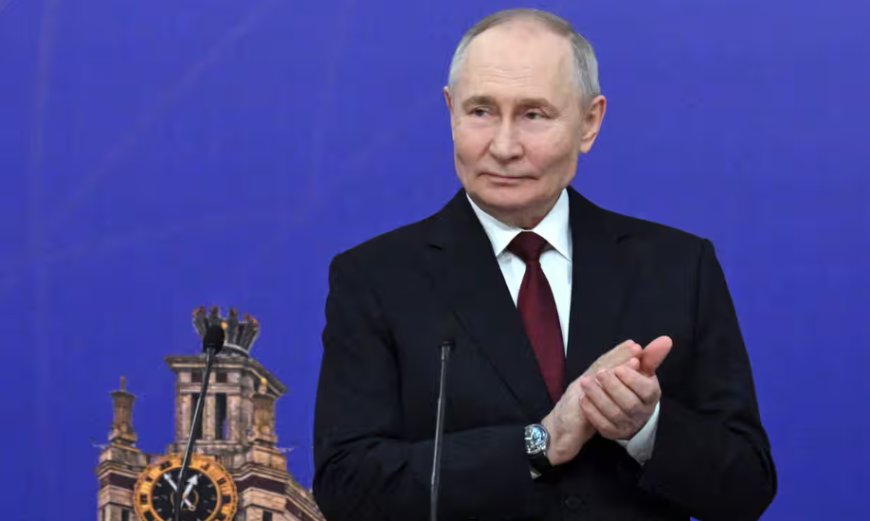The war in Ukraine, approaching its third year, has led to significant geopolitical tensions, economic consequences, and changes in international diplomacy. Recent events highlight a complicated relationship between Russian President Vladimir Putin's negotiation proposals and Donald Trump's resurgence as a key political figure in the United States, prompting questions about possible diplomatic solutions. This article examines Putin's expressed willingness for dialogue, his conditions concerning Ukraine, and how Trump's policies may affect the ongoing conflict.
Putin's Position on Negotiations
In late January 2025, Putin indicated his readiness to engage in talks about the Ukraine conflict with Trump. His comments, relayed by Russian state media, highlighted the importance of maintaining a composed dialogue as tensions rise between Russia and the West. Putin characterized his rapport with Trump as pragmatic and reliable, proposing that their meeting could pave the way for discussions on vital topics such as energy costs and arms control (Reuters, January 24, 2025).
Putin highlighted significant challenges ahead of potential talks, particularly President Zelenskyy's 2022 order prohibiting negotiations with Russia. This order came as a reaction to Russia's annexation of certain Ukrainian lands, a move condemned globally. Putin's demand to remove Western sanctions and for Ukraine to vacate certain areas reflects the Kremlin's uncompromising position, which stresses the necessity of Ukrainian neutrality and a significant cutback on military strength (Associated Press, January 24, 2025).
The Context of Ongoing Conflict
The conflict has resulted in significant casualties for both sides, pushing Ukraine into a personnel crisis. The Biden administration's advice to reduce Ukraine's mobilization age underscores the pressing need to enhance military strength in response to ongoing Russian offensives. Nevertheless, analysts indicate that Russia could withstand another year of warfare due to its internal economic resilience (Prokopenko, Foreign Affairs).
Putin expresses confidence in the stability of Russia's economy despite evident strains such as inflation and the burdens of military spending. The Kremlin maintains that it has endured Western sanctions more effectively than expected. Still, the growing pressure on Russia’s fiscal health casts doubt on the long-term sustainability of this claim (Financial Times, January 2025).
Trump’s Influence on the Conflict
Trump's renewed prominence in politics has sparked fresh debates regarding U.S. foreign policy on Russia and the Ukraine war. During his previous term, his administration sought to negotiate resolutions with Putin, and he has recently advocated for a quick resolution to the conflict. His views align with earlier comments regarding sanctions and energy policies.
During a Fox News interview, Trump targeted Zelenskyy, implying that the Ukrainian president bears some blame for the war. This viewpoint aligns with a narrative promoting future negotiations with Russia. Additionally, Trump's suggestion of a demilitarized zone along existing frontlines indicates a strategic shift that may affect diplomatic conversations (The Guardian, January 2025).
However, Russia's response to possible U.S. proposals is cautious. The Kremlin has stated that any negotiations must consider its sovereignty and security concerns and also regard Trump’s economic threats skeptically. The hardline factions in Russia, suggesting that Ukraine's surrender is the only viable solution, further complicate the chances for productive dialogue (Malofeev, Telegram Channel).
Conclusion
The changing landscape of the Russia-Ukraine conflict showcases a complex interplay of diplomacy, military tactics, and economic factors. Putin's readiness to collaborate with Trump offers a potential negotiation pathway, though it faces significant challenges, especially regarding Ukraine's sovereignty and territorial integrity. As Trump aims to strengthen his impact on U.S. foreign policy, the chances for peace remain unclear, possibly depending on the readiness of both leaders to make compromises.
The situation continues to evolve, making it crucial to monitor diplomatic developments to evaluate the path to resolution.
References
Reuters. (January 24, 2025). Putin ‘ready for negotiations’ with Trump on Ukraine war.
Prokopenko, A. (January 2025). Are Russia’s Economic Challenges Enough to Shift Putin’s Determination? Foreign Affairs.
The Guardian. (January 2025). Putin strikes favorable tone towards Trump amid Ukraine conflict.
Financial Times. (January 2025). Navigating the Economic Strains of Russia Amid the Ukraine War.
Malofeev, K. (January 2025). Telegram Channel Post on Ukraine's Outcomes.

 Kinyarwanda
Kinyarwanda
 English
English







































































